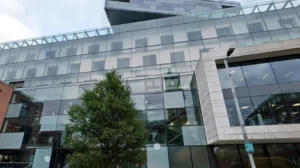Key Points:
- Waltham Forest Council faces backlash after axing weekly bin collections.
- Residents threaten to protest by paying council tax every second month.
- General refuse (black bins) will now be collected fortnightly instead of weekly.
- Residents express concerns over overflowing bins, fly-tipping, and vermin.
- Council states the change aligns with 259 out of 295 UK councils.
- Deputy Leader Clyde Loakes defends the decision, citing environmental goals.
- Recycling and food waste collections will remain weekly.
- Many residents express frustration on social media and demand reconsideration.
Waltham Forest Council is facing a fierce backlash from residents after announcing that weekly bin collections will be scrapped in favour of a fortnightly schedule.
From March, households in street properties will have to wait two weeks for their black bin—used for general refuse—to be collected. This move has angered many, with residents claiming that their bins are already overflowing since they were halved in size last year.
Social media platforms have been flooded with complaints, with many fearing an increase in fly-tipping, the presence of vermin, and unpleasant odours, especially during warmer months. Despite these changes, residents in flats will continue to have their communal bins collected weekly.
The Labour-run council, which charges one of the highest council tax rates in London (£2,173 for Band D households), has been criticised by residents who are demanding better services for their money.
Theo Theodorou, a resident, commented: “Would it be ok if I pay my council tax every other month from now on?”
Emel Ozkarakasli voiced concerns over hygiene, stating: “Our black bin was swapped over from the large one to the smaller one some time ago—without our knowledge. This now is full, sometimes overflowing every week!! So how is a fortnightly collection going to help this?”
Ninia Benjamin accused the council of disregarding residents’ needs: “As councils go, London Borough of Waltham Forest is determined to prove they have a distaste for residents.”
Other residents, such as Caitlin Pedder, highlighted concerns about the summer heat: “This is going to smell LOVELY in the summer, especially for those of us in terraced houses where our bins are right under our windows.”
Additionally, elderly residents with continence issues have expressed concern about how they will manage with less frequent collections.
Waltham Forest Council provides households with four bins:
- A small black bin for non-recyclable rubbish (now collected fortnightly).
- A large green bin for recyclable items (collected weekly).
- A small brown bin for garden waste (collected fortnightly).
- A small caddy for food waste (collected weekly).
Clyde Loakes, Deputy Leader and Cabinet Member for Climate and Air Quality, defended the decision by pointing out that 259 out of 295 UK councils already operate a similar system. He stated: “If the residents of those councils can embrace this important behaviour change then I have every confidence Waltham Forest residents, with the right suite of bins on their doorstep, can do the same.”
Loakes further explained that the change aligns with the borough’s goal of becoming net-zero by 2030. He noted that the introduction of a food waste collection last year has already diverted 100 tonnes of waste per week from black bins.
“We all need to do more to recycle all that we can and reduce the amount of black bin waste that cannot be recycled to a minimum,” he added.
Waltham Forest is not the only London borough making changes to its waste collection services. Last week, Lewisham Council was identified in a TaxPayers’ Alliance survey as planning to switch its weekly recycling collection to a fortnightly schedule.
The south London borough has also advised businesses that they will need to separate their food waste in compliance with new nationwide waste management rules that come into effect from March 31.
While the council remains firm on its decision, resident protests and social media backlash continue to grow. With local council tax increases set to be revealed next week, all eyes will be on whether further concessions or adjustments will be made in response to public pressure.
As frustration mounts, residents continue to demand reconsideration, arguing that their concerns over hygiene, waste management, and community health should take precedence over environmental targets.








